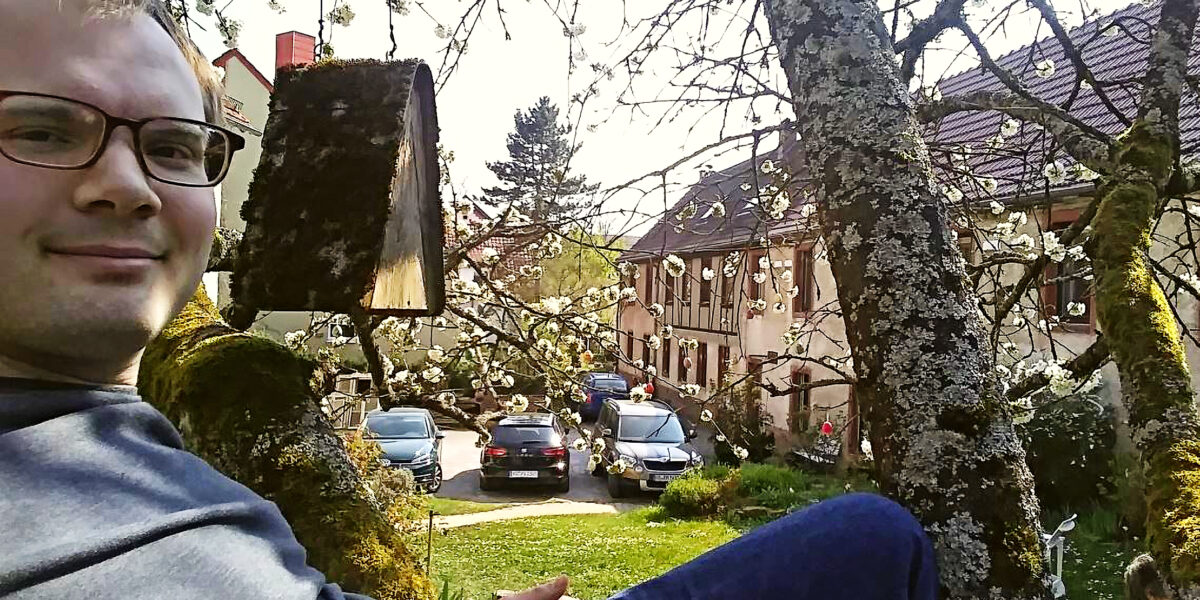Benjamin Isaak-Krauß and David Lapp Jost propose ways to offset carbon emissions from travel to Mennonite World Conference’s Assembly 17 in Indonesia.
This article first appeared on Mennonite World Conference’s website on Feb. 2. It has been adapted and reprinted with permission.
The first Mennonite World Conference (MWC) global assembly was held in Basel, Switzerland, in 1925. Participants convened to celebrate the 400-year anniversary of Anabaptism. Since then, assemblies have been held around the world approximately every six years. This year, MWC Assembly 17, will be hosted by the three Indonesian Anabaptist-Mennonite synods in Central Java, July 5-10.
Participants often describe worship at MWC global assemblies as a foretaste of heaven, as described in Revelation 7, with all nations and races and languages singing praises to God. However, this year, many Anabaptists are weighing the joys of gathering for worship against the looming climate crisis and environmental costs of travel. A representative from MWC spoke with two Mennonites in Germany who are thinking about these issues.
"Climate change is the peace issue of our time," said Benjamin Isaak-Krauß, pastor of Frankfurt Mennonite Church. "There’s no just peace on a planet that is three degrees [Celsius] warmer."
David Lapp Jost, who is serving through Mennonite Mission Network, works with Deutsches Mennonitisches Friedenskomitee (DMFK, the German Mennonite Peace Committee) in the areas of fundraising and environmental advocacy. Lapp Jost said Mennonites should oppose exploitative systems that have grown from our legacy of settling on and benefitting from lands that were home to Indigenous peoples, the same systems that have led to climate change and war.
"I hope making the church an authoritative and powerful responder to climate change becomes an important part of who we are over the next decades," said Lapp Jost.
A Pentecost imperative
The church has been an international institution since Pentecost. So in a globalized world with rising nationalism, Isaak-Krauß said that it is vitally important "to have this concrete experience of worshipping with Christians around the world, who look and talk and believe differently, but who are still connected through Jesus and the Holy Spirit."
Lapp Jost believes that much of the work of the church happens at the local level. "Yet if we aren’t connected with the global church, we don’t experience the Holy Spirit the same way as [the first century church] embodied [the Holy Spirit] during Pentecost," he said. "It’s ingrained in the mission of the church to be together across national lines and learn from each other."
A global communion of actual people
As a teenager, Isaak-Krauß didn’t just attend the Global Youth Summit and Assembly 15 in Paraguay; he spent a half year in the country getting to know Mennonite communities there. He formed lasting friendships. For Assembly 16, held in Harrisburg, Pennsylvania, he organized a tour for German youths, so they could spend weeks in the United States getting to know various Mennonite communities — urban and rural, conservative and progressive.
"It makes the idea of a global communion into something you can perceive and interact with — with actual people," Isaak-Krauß said.
Climate change and Assembly
Natural disasters around the world have impacted people who have become our friends, Isaak-Krauß said. In our global society, connected through technology, commerce and worship, natural disasters touch all of us. The aspect of community that Mennonites espouse as core to faith and practice is key to our response to climate change.
Lapp Jost said he hopes MWC can foster conversation about how climate change is affecting the Global South and that these conversations will bring the Global North into solidarity.
"It would be really sad if people who are concerned about climate don’t come to MWC events anymore," Isaak-Krauß. "It would be better to come and wrestle with the fact we are one body with people affected by climate change."
Both Isaak-Krauß and Lapp Jost hope that, as a peace church, MWC members will repent and transform the world’s broken systems.
"Hopefully, the Holy Spirit makes it happen," Lapp Jost said.
Rather than not attending Assembly 17 in Indonesia because of climate concerns, Isaak-Krauß and Lapp Jost have offered some practical ideas to balance the environmental costs of travel:
- As a congregation, fast — from eating meat, private vehicle usage, vacations that involve flying, et cetera — to offset the carbon emissions of members who attend Assembly 17.
- Dialogue with farmers about regenerative practices. Buy food from farmers markets.
- Live simply. Reuse and repair whenever possible. Reduce fossil fuel use in transportation and heating. Use and advocate for local public transit.
- Engage in local politics and advocate for sustainable development.
- Boycott companies that are responsible for pollution and the destruction of the environment.
- Learn how nonviolent direct action creates change by engaging with the Stir Up Peace series.
- When you travel by plane, invest in environmental work in your destination. Learn about climate issues in Indonesia — for example, deforestation and landfill pollution from Western countries.
Look ahead to Assembly 18 in Africa by investing in relationships and sustainable initiatives there and planning low carbon travel.








